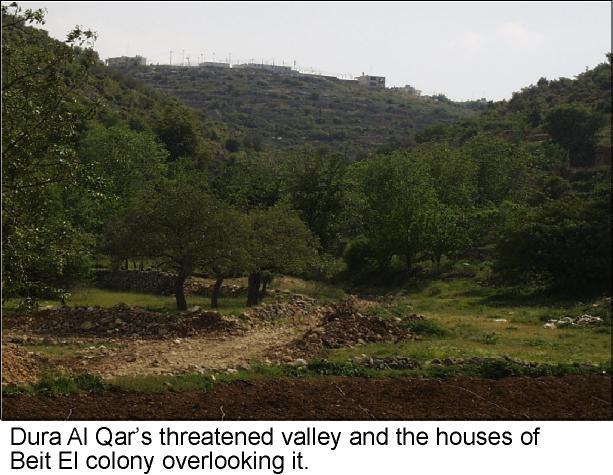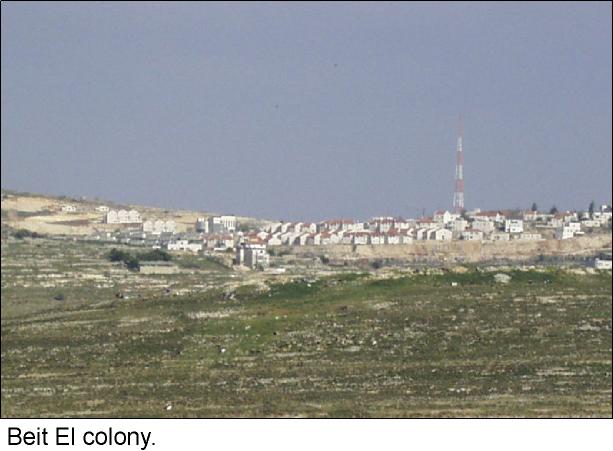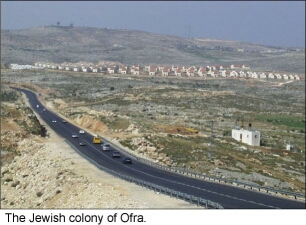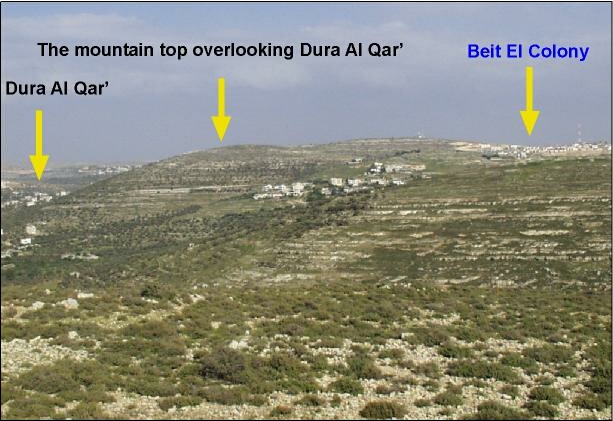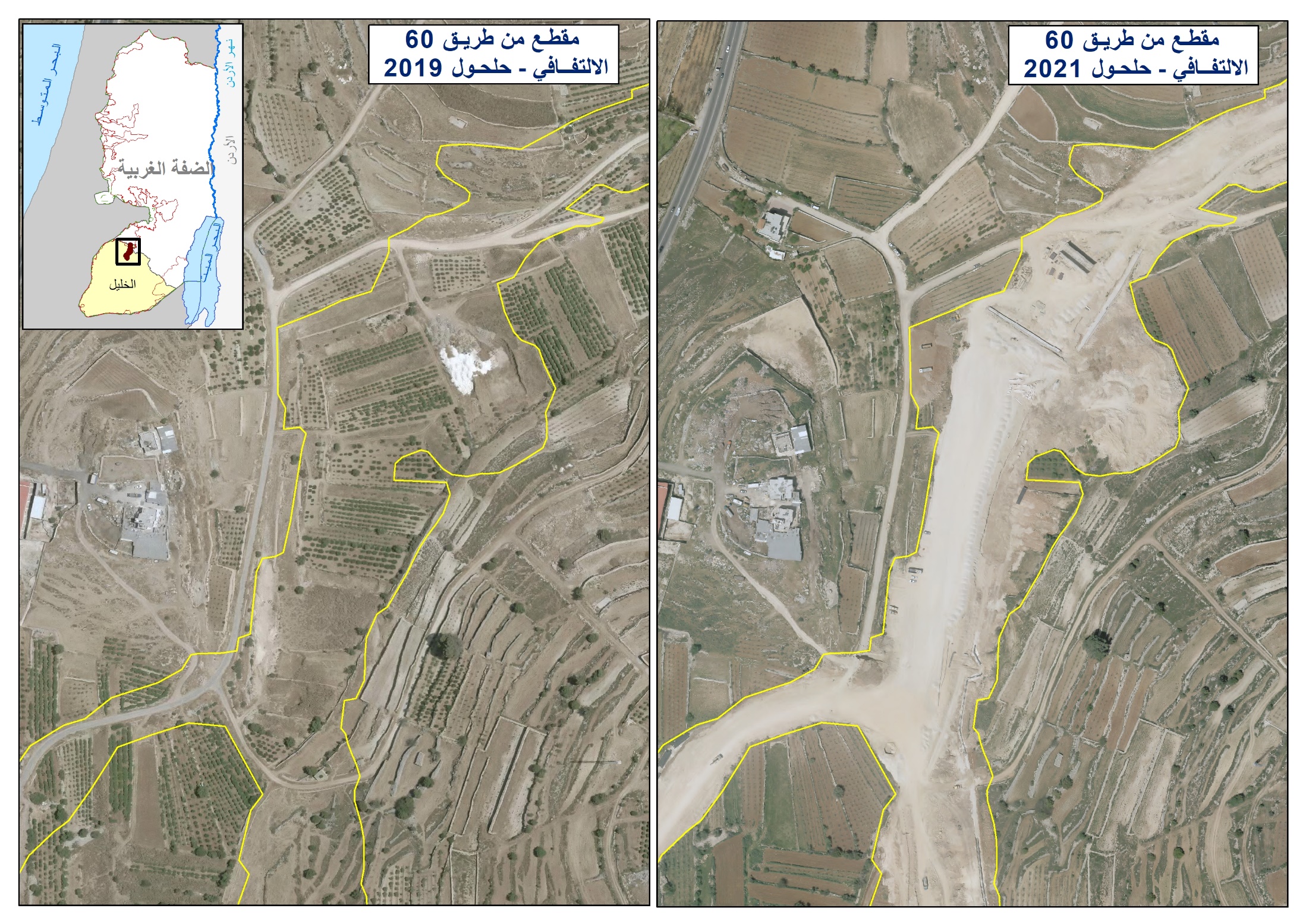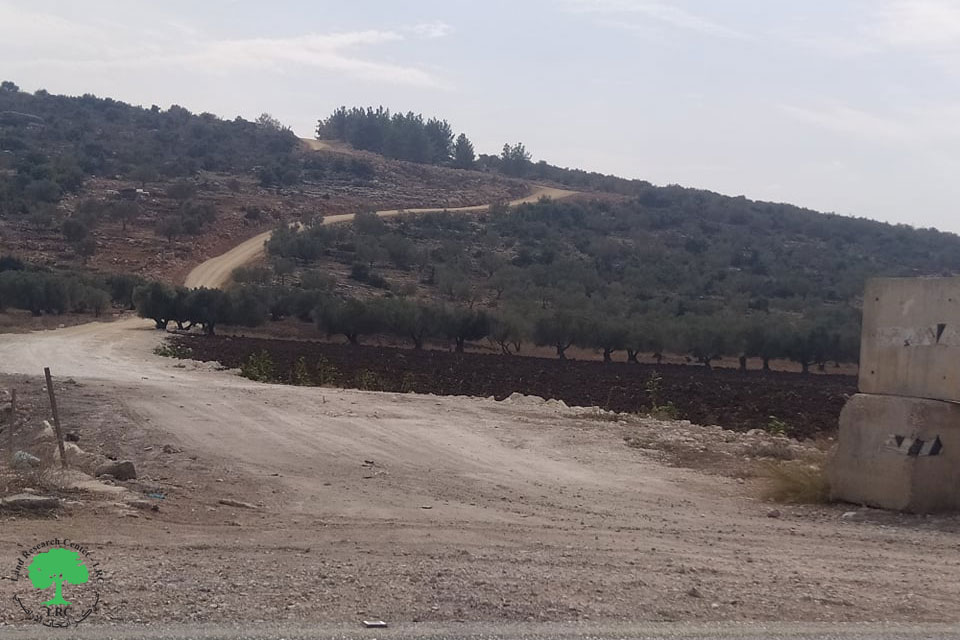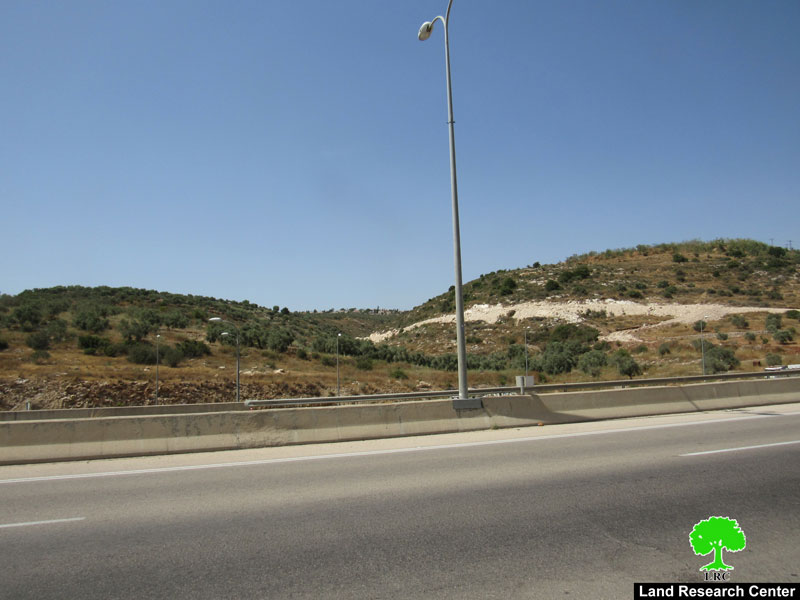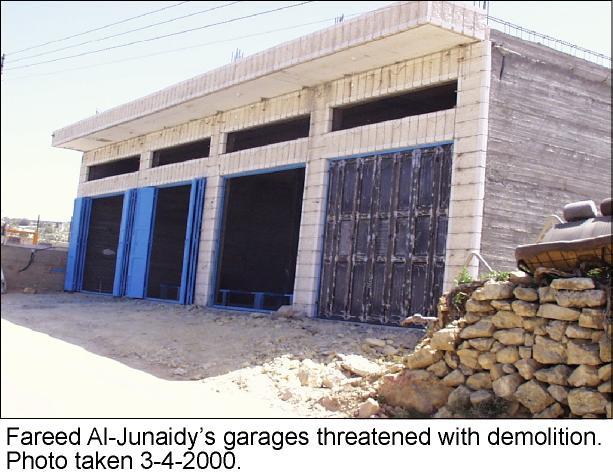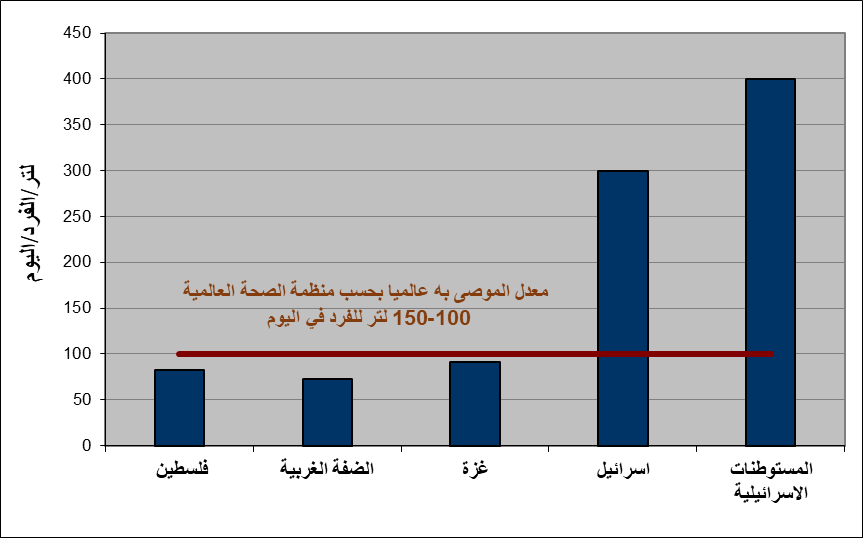Dura Al Qar' is a village lying 4 kilometers northeast of the twin cities Ramallah-El Bireh. Its population is around 1600 people, most of whom are farmers. Dura Al Qar' is famous for having one of the most fertile lands in the area and contributes a lot to Ramallah's vegetable market. Furthermore, Dura Al Qar' is also important archaeologically. Dr. Hamdan Taha, director of the Department Of Antiquities, says Dura Al Qar's archaeological history dates back to the Roman period. It has tombs, pools and canals hewn in the solid rock. The most unique feature in the village is its traditional irrigation system that represents one of the most preserved water systems. A series of restorations were carried out to safeguard the sites and Dura Al Qar' is now declared an environmental and archaeological conservation area (see photo).
Yet, Dura Al Qar's livelihood and heritage are under threat. The Israeli authorities confiscated 1080 dunums from Dura Al Qar' and the villages next to it in order to build a bypass road linking the settlements of Beit El and Ofra.
Beit El was established in 1977 inside the military camp that was there. In Beit El lies the headquarters of the Israeli Civil Administration. In 1998 it had 3340 settlers (see photo). Ofra was established in 1975 in the location of a former Jordanian military outpost and it housed 1350 settlers in 1998. It has a printing press, factories, and a 120-bed hotel (see photo).
The planned road is 6 km long and passes right through the most fertile lands of Dura Al Qar'. It is planned to be 160 meters wide with a further 200-meter buffer zone on each side in which construction will be forbidden (see map). The recent confiscation include 777.6 dunums from Dura Al Qar' village alone, bringing the total area of lands confiscated from Dura Al Qar' to 2891 dunums. This means that over 70% of Dura Al Qar's 4016 dunums have been confiscated so far. The number of families affected by the recent confiscation is 142. Members of the village council said that most of the confiscated lands are cultivated and that 58% of the residents depend completely on those lands as their only source of income. The road's path will also affect eight irrigation-pools, seven springs and 2000 trees. There is also a school under construction that is threatened by the road (see photo).
The Israeli authorities claim that the road is intended to connect Beit El and Ofra by a safe passage. Yet the two settlements are already connected since both of them are linked to the main North-South bypass road (see map). That connection measures 12.1 kilometers from the entrance of Beit El to the entrance of Ofra. Hence it is very difficult to see how a 6-kilometer difference can justify destroying the livelihood of over half of Dura Al Qar's population; not to mention the permanent damage that would incur its archeological treasures. The villagers, as well as human rights groups, assert that the real aim of the bypass road is to insure Israeli control over the mountain top overlooking Dura Al Qar' and the villages next to it (see photo). Moreover, the new road will also reserve land for future expansion of Beit El.
The Israeli government's policy of unilaterally deciding the fate of the West Bank and Gaza is threatening the current domestic calm. Acts such as those contradict the Fourth Geneva Convention and definitely negate the spirit and text of the agreements signed with the Palestinians. Bending the truth and going around basic human rights serve only to aggravate an already tense atmosphere rather than to diffuse it.
Prepared by:
The Applied Research Institute – Jerusalem


